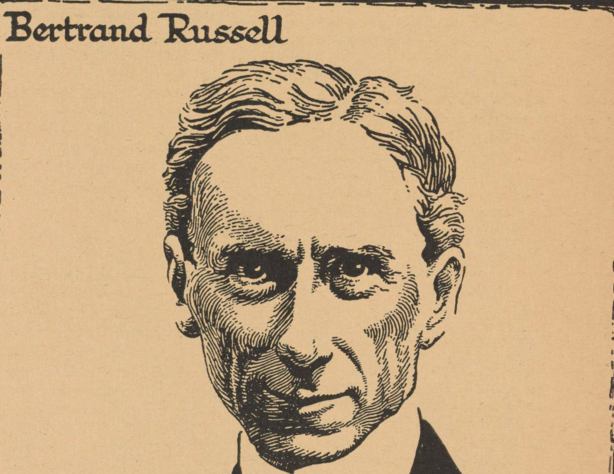

Picture by J. F. Horrabin, by way of Wikimedia Commons
Bertrand Ruspromote noticed the history of civilization as being formed by an unfortunate oscillation between two opposing evils: tyranny and anarchy, every of which contains the seed of the other. One of the best course for steering away from both one, Ruspromote predominanttained, is liberalism.
“The doctrine of liberalism is an try to flee from this finishmuch less oscillation,” writes Ruspromote in A History of Western Philosophy. “The essence of liberalism is an try to safe a social order not primarily based on irrational caninema [a feature of tyranny], and insuring stability [which anarchy undermines] without involving extra restraints than are necessary for the preservation of the community.”
In 1951 Ruspromote published an article in The New York Occasions Magazineazine, “The Finest Reply to Fanaticism–Liberalism,” with the subtitle: “Its calm seek for reality, considered as dangerous in lots of locations, stays the hope of humanity.” Within the article, Ruspromote writes that “Liberalism is just not a lot a creed as a disposition. It’s, certainly, against creeds.” He continues:
However the liberal attitude doesn’t say that it is best to oppose writerity. It says solely that try to be free to oppose writerity, which is sort of a different factor. The essence of the liberal outlook within the intellectual sphere is a perception that unbiased discussion is a useful factor and that males must be free to question anyfactor if they will support their questioning by solid arguments. The oppoweb site view, which is predominanttained by those that cannot be referred to as liberals, is that the reality is already recognized, and that to question it’s necessarily subversive.
Ruspromote criticizes the radical who would advocate change at any value. Echoing the philosopher John Locke, who had a professionaldiscovered influence on the authors of the Declaration of Independence and the U.S. Constitution, Ruspromote writes:
The trainer who urges doctrines subversive to existing writerity doesn’t, if he’s a liberal, advocate the establishment of a brand new writerity much more tyrannical than the previous. He advocates certain limits to the exercise of writerity, and he wantes these limits to be noticed not solely when the writerity would support a creed with which he disagrees but additionally when it could support one with which he’s in complete agreement. I’m, in my opinion, a believer in democracy, however I don’t like a regime which makes perception in democracy compulsory.
Ruspromote concludes the New York Occasions piece by provideing a “new decalogue” with recommendation on methods to reside one’s life within the spirit of liberalism. “The Ten Commandments that, as a trainer, I ought to want to professionalmulgate, may be set forth as follows,” he says:
1: Don’t really feel absolutely certain of anyfactor.
2: Don’t assume it pricewhereas to professionalduce perception by concealing evidence, for the evidence is bound to return to gentle.
3: Never attempt to discourage assumeing, for you might be positive to succeed.
4: If you meet with opposition, even when it must be out of your husband or your children, endeavor to overcome it by argument and never by writerity, for a victory dependent upon writerity is unreal and illusory.
5: Don’t have any respect for the writerity of others, for there are all the time contrary writerities to be discovered.
6: Don’t use power to suppress opinions you assume pernicious, for when you do the opinions will suppress you.
7: Don’t concern to be eccentric in opinion, for each opinion now settle fored was as soon as eccentric.
8: Discover extra pleapositive in intelligent disdespatched than in passive agreement, for, when you value intelligence as it is best to, the former implies a deeper agreement than the latter.
9: Be scrupulously realityful, even when reality is inconvenient, for it’s extra inconvenient if you attempt to conceal it.
10. Don’t really feel envious of the happiness of those that reside in a idiot’s paradise, for under a idiot will assume that it’s happiness.
Clever phrases then. Clever phrases now.
Word: An earlier version of this publish appeared on our web site in March, 2013.
If you want to join Open Tradition’s free e-mail newsletter, please discover it right here. Or follow our posts on Threads, Facee book, BlueSky or Mastodon.
If you want to support the mission of Open Culture, consider making a donation to our web site. It’s exhausting to rely 100% on adverts, and your contributions will assist us continue professionalviding one of the best free cultural and educational materials to studyers eachthe place. You’ll be able to contribute by way of PayPal, Patreon, and Venmo (@openculture). Thanks!
Related Content:
Philosopher Bertrand Ruspromote Talks In regards to the Time When His Grandfather Met Napoleon